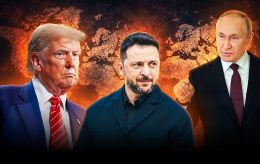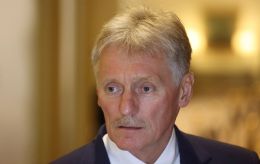Inside Putin's private armies: From battle for Bakhmut to wars in Africa
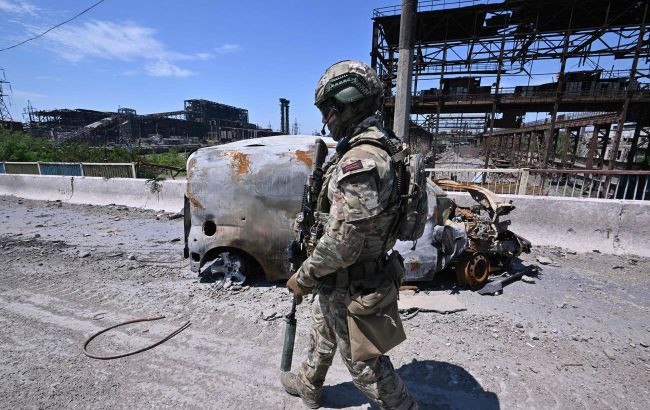 Russian soldier in occupied Mariupol (photo: Getty Images)
Russian soldier in occupied Mariupol (photo: Getty Images)
Russia is using its private military companies (PMCs) on a massive scale to wage war against Ukraine and maintain its influence in other regions. RBC-Ukraine explores what goals the Kremlin set for military companies, and what the dangers are of their concentration in Russia.
Russia seeks to conquer as much Ukrainian territory as possible without slowing down its offensive. Despite the Ukrainian Armed Forces' successful operations to repel Russian military attacks, the situation on the front lines remains tense. And to maintain this tension, the Kremlin needs people.
After three and a half years of war, Vladimir Putin has still not announced a general mobilization, preferring to act covertly. And he is aided in this by an extensive network of private military companies. Instead of recruiting people directly into the army, the military leadership often uses volunteer corps that report directly to the Ministry of Defense as a cover.
Most of the PMCs, or what are commonly referred to as private military companies, are involved in combat operations in Ukraine. The rest represent Russia's interests far beyond its borders — influencing elections, monitoring the extraction of valuable resources, and supporting military conflicts. But PMCs are growing in number, and the existence of a large network of paramilitary structures within a totalitarian state poses great risks to the authorities.
Not just Wagner
Private military companies are officially banned in Russia. The Russian Criminal Code has an article on mercenary activity, which serves as a convenient lever for controlling those who decide to go against the authorities. However, this article has only been applied once in the history of modern Russia, when the leaders of the Slavic Corps were imprisoned.
Within the state apparatus, PMCs are not only permitted — they are necessary, and their activities are actively encouraged. Back in May 2023, Putin congratulated the Wagner PMC fighters on the capture of Bakhmut.
And although Putin did not call Wagner a private military company, by mentioning the musicians, as they are called in military circles, he legitimized Yevgeny Prigozhin's PMC. At the same time, it should be noted that private military companies in Russia do not need legitimization. Their activities have become so firmly entrenched in the system that the state can no longer do without their services.
The first PMCs in Russia appeared back in the 1990s. These were the classic military companies, such as Antiterror (later renamed Antiterror-Orel), which was created by the owner of Vnukovo Airlines, Sergei Isakov. They called themselves a club of like-minded people and were mainly engaged in demining and training personnel in conflict zones. In 1998, Isakov himself arranged Vladimir Zhirinovsky's visit to Baghdad and his meeting with Saddam Hussein. In fact, the direction of one of the Russian PMCs, and soon most of them, was already set at that time.
At that time, the Russians were trying to create analogues of American and British PMCs in their country, which regularly participated in local conflicts around the world. In his article Russian PMCs Short Course, political analyst Igar Tishkevich says that the Tsarskie Volki group can be considered the first full-fledged private military company. It was created in 1993 by Russian politician Dmitry Rogozin. The company signed contracts to protect businessmen, escort valuables, and evacuate people from conflict zones.
In the 2000s, large Russian holding companies and corporations began to create their own PMCs. In this case, military companies organically grew out of security services, for example, Lukom-A, the PMC of the Lukoil company. The structure itself was created by former members of the KGB's Vympel group, a special unit of the KGB and later the FSB. Lukom-A mercenaries were involved in guarding oil production facilities in Iraq and espionage. However, they cannot be called PMCs in the classical sense, like many Russian paramilitary groups.
"In general, in Russia, if we take paramilitary structures founded by commercial companies or private individuals that can act as security or private military companies, there are currently about 40-45 such structures. Some of them are well known, but again, they cannot be called PMCs," Tishkevich said in a comment to RBC-Ukraine.
The nature of Russian private military companies changed in 2014, when the Kremlin needed paramilitary structures that could be deployed in combat operations in Ukraine. They did not want to expose regular army soldiers. In 2015, the Russian leadership remembered the fighters of the Slavic Corps, who at that time were in Syria together with special forces officer Dmitry Utkin, nicknamed Wagner. A supervisor was immediately found for the PMC — Yevgeny Prigozhin, who was regarded as a person without any particular political ambitions. This is how the Wagner PMC appeared in Russia.
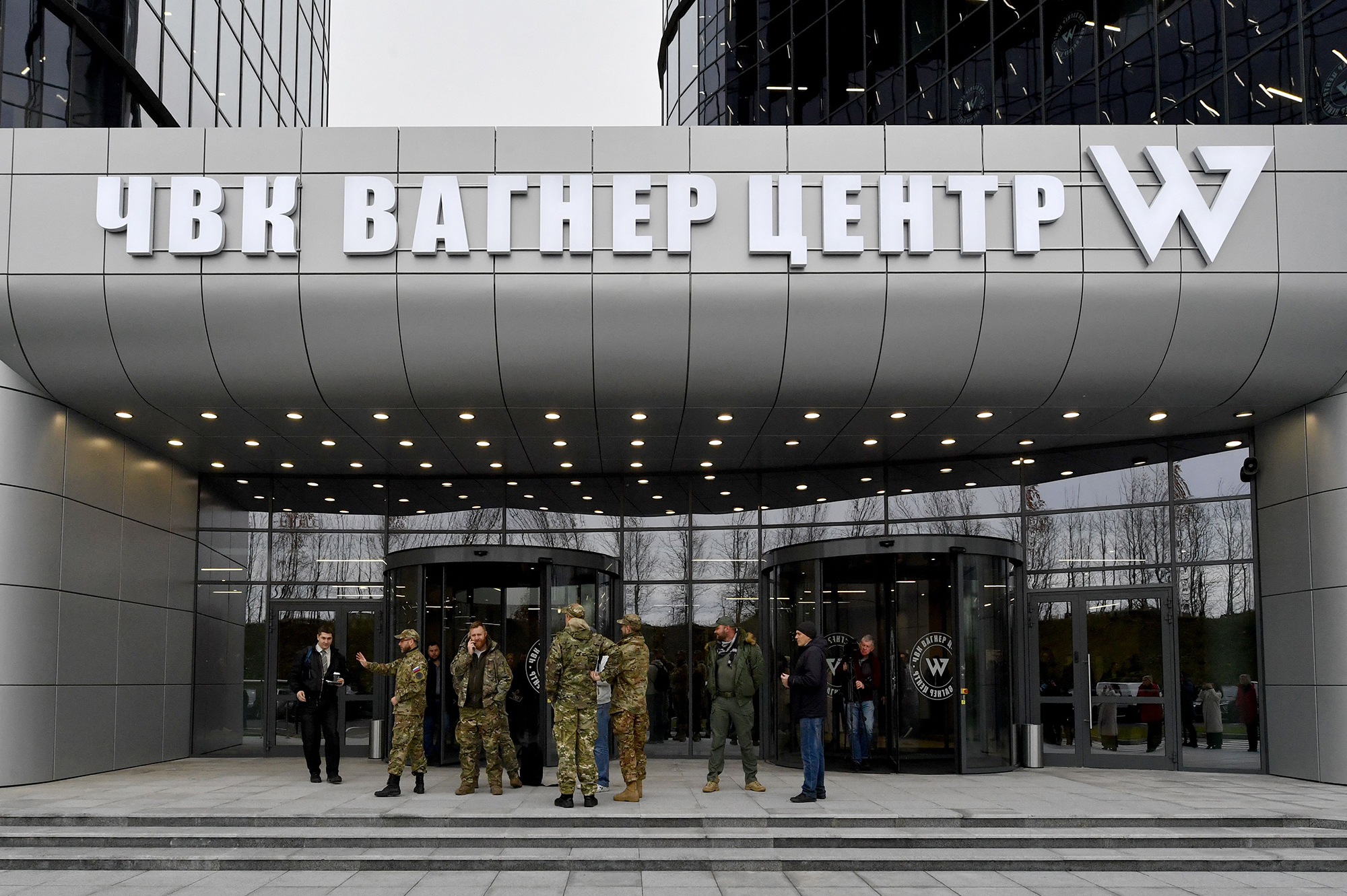 Wagner PMC recruitment center (photo: Getty Images)
Wagner PMC recruitment center (photo: Getty Images)
Within a few years, Wagner became one of the most influential military companies, performing tasks of increased complexity. In 2015, Prigozhin took on contracts to provide security for Rosneft and Gazprom facilities in North Africa and Venezuela, and in 2016, Wagner's mercenaries were already contracted to train special forces in Ecuador, the Central African Republic, Madagascar, Zimbabwe, and other countries on the African continent. Prigozhin even provided his political strategists to conduct elections in Madagascar.
Paramilitary groups became a very valuable resource for the war that Russia waged against Ukraine from 2014 to 2022. It was possible not to use the armed forces, to resolve issues with the help of mercenaries, and to say they are not there, which is what the Kremlin broadcast. Alongside Wagner, other, let's say, combat PMCs appeared, such as Mor and Patriot (the latter is linked to former Russian Defense Minister Sergei Shoigu).
Military companies began to actively establish themselves in the occupied territories of Ukraine. For example, in the occupied Crimea, Tavrida, Vezhlivue Lyudy, Chornoe More, and Vizantia grew in just a few years. These and similar companies were involved in the removal of valuables from the captured cities of Ukraine, as well as evacuation, often on request.
In Russia and the occupied territories, the so-called kazachestvo (Cossacks - ed.) were also formed. It cannot be called a private military company in the full sense of the word — yes, they have their own command structure, they receive funds from several sources, perform security and defense functions, and go on so-called business trips to the post-Soviet space. But all this activity is regulated by a special law on the Cossacks, as absurd as it may sound.
"Therefore, formally, from the Russian point of view, it is simply kazachestvo, it is neither a security structure nor a state structure, but something in between. But yes, by its characteristics, it is a certain militarized structure that deals with the force component, but also performs ideological functions," Tishkevich notes.
Wagner forced the Russian leadership to reconsider its attitude toward private military companies in general. The so-called musicians themselves were not initially involved in Russia's large-scale war against Ukraine. Prigozhin carefully protected his contingent and kept it in Africa, recruiting less experienced and valuable fighters to the ranks of the local Wagner. He was given complete carte blanche when he was allowed to recruit prisoners. On this occasion, Prigozhin often traveled to Russian colonies and looked for fighters suitable for himself. "We need your criminal talents!" he exclaimed, standing on the parade ground in front of the criminals.
Everything changed after Prigozhin's mutiny. It happened just a month after Putin thanked his Wagners for the occupation of Ukraine's Bakhmut in June 2023. After a series of conflicts with the Russian military leadership, Prigozhin went to Moscow, but he was stopped and later died in a plane crash. The first Wagner, Dmitry Utkin, died with him. After that, the Kremlin reconsidered its attitude towards the PMC in general.
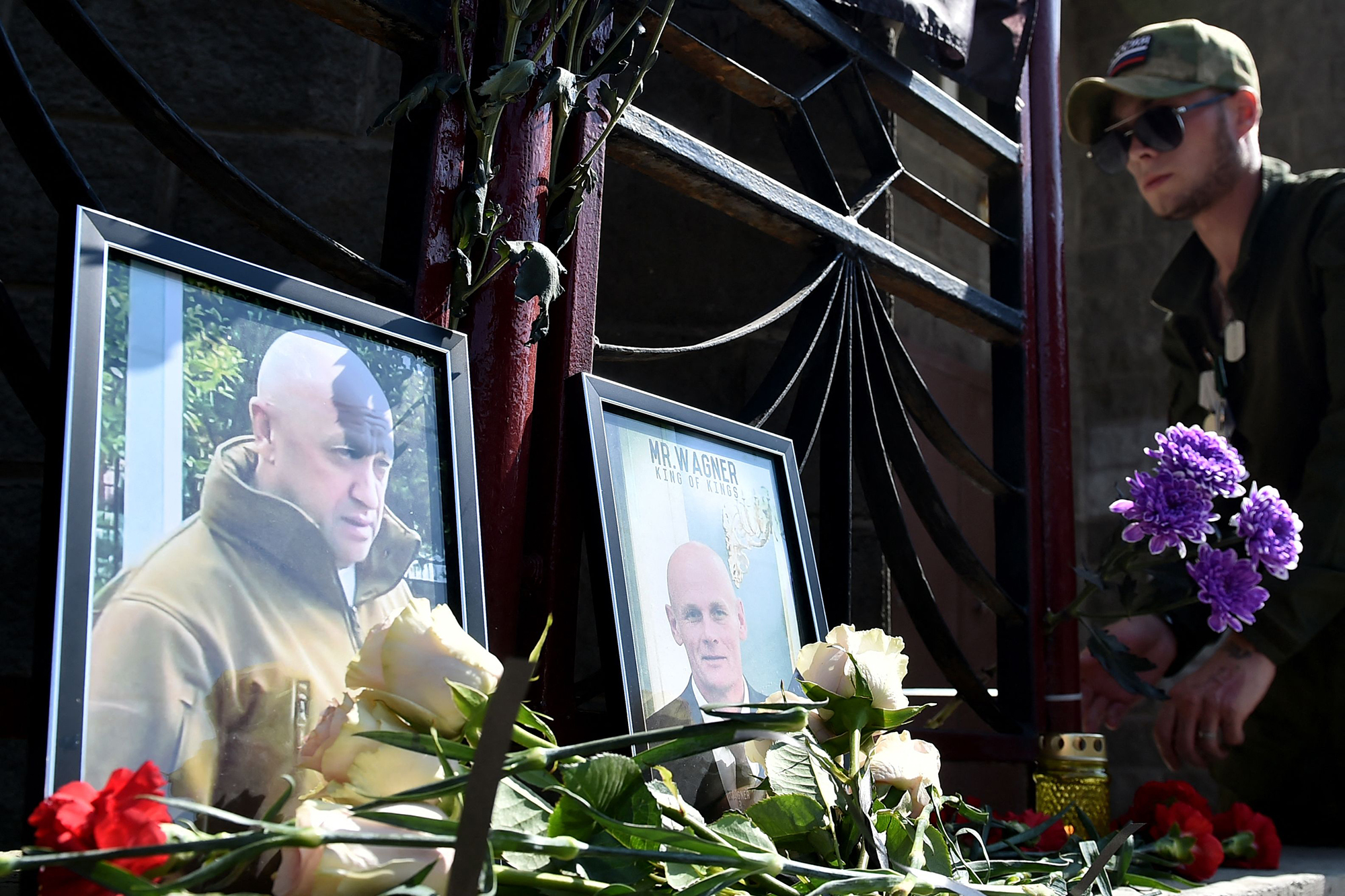 The funeral of Prigozhin and Utkin in Novosibirsk (photo: Getty Images)
The funeral of Prigozhin and Utkin in Novosibirsk (photo: Getty Images)
Wide range of Russian interests
In 2023, Russia decided that PMCs should be under strict control and supervision. Today, most Russian military companies, if they go to a combat zone, sign contracts with the Russian Ministry of Defense. Most of the Wagners went to sign contracts with the ministry after Prigozhin's death. Combat PMCs such as Redut and Medvedi have the same relationship with the military leadership.
"Today, former Russian private military companies such as Wagner, Redut, Medvedi, and others have been integrated into the structures of the Ministry of Defense or the Russian Guard with mandatory contracts for military service," the Defense Intelligence of Ukraine (HUR) said in a comment to RBC-Ukraine.
In general, almost all Russian PMCs are involved in the war with Ukraine in one way or another, to a greater or lesser extent. Some are engaged in recruiting and training fighters, including Andreevsky Khrest (St. Andrew's Cross), whose members train mercenaries as part of the Kremlin's Orthodox military campaign. Others are directly involved in combat operations. For example, the Veterans Special Forces (not a classic PMC, but with its characteristics) — their mercenaries participated in Operation Truba in Avdiivka, for which they were later praised by Putin.
RBC-Ukraine's sources in the special services name many PMCs and BARS (the country's combat army reserve - ed.) that are fighting in Ukraine. Among them are sabotage and assault reconnaissance group Rusich, Tavrida, BARS-13 (Russian Legion), the Tigr battalion, PMCs Konvoy, RSB-Group, Redut, Yastreb, Volki, Akhmat, and Kamerton.
"PMCs in Russia have certain characteristics of a standard military structure for the formation of units and are conditionally represented by combat detachments and assault groups. They consist of army and special services veterans, active military personnel, former recruited prisoners, and volunteers. Russian PMCs are subordinate to the Main Directorate of the General Staff of Russia (better known as the GRU)," sources in the special services note.
The tasks of the PMC in the combat zone also vary. Those who are recruited for meat assaults are not spared and are immediately sent to the front line, while others, who are more experienced, are used for other purposes. Among the main tasks are the removal of valuables and the evacuation of people needed by Russia.
"Other military formations that are not part of the regular Armed Forces of Russia and are directly involved in armed aggression against Ukraine have been united into the so-called volunteer corps of the Russian Ministry of Defense. The formation of the volunteer corps was initiated in accordance with an order of the Russian Defense Minister in February 2023," the Defense Intelligence of Ukraine notes.
The rest of the Russian PMC contingent is actively expanding Russia's sphere of influence on various continents. In order to preserve its interests in Africa, Russia has brought together the so-called African Corps under one umbrella, based on the fighters of the Wagner PMC. The corps is under the overall command of Russian Deputy Defense Minister Yunus-Bek Yevkurov.
The African Corps is active in Libya, Mali, the Central African Republic, Burkina Faso, Equatorial Guinea, Niger, Sudan, Chad, and Togo. The tasks vary from place to place, but they all relate to preserving Russia's influence or business interests. For example, there is a military contingent of 100 fighters in Burkina Faso. They train local military personnel and protect the transitional president, Ibrahim Traoré.
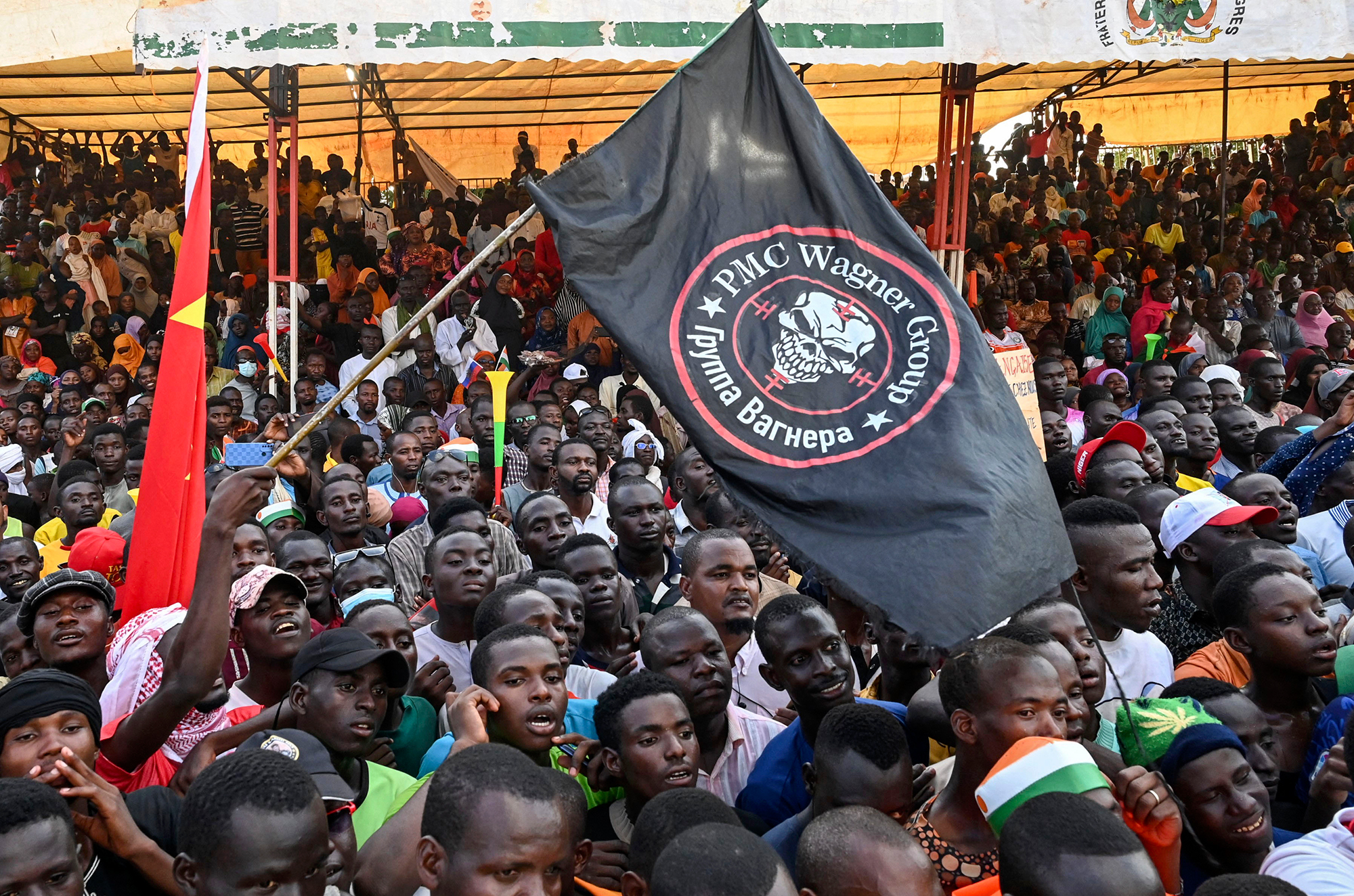 Residents of Niger with the Wagner PMC flag (photo: Getty Images)
Residents of Niger with the Wagner PMC flag (photo: Getty Images)
In the CAR, Russia is trying to secure access to precious stones and uranium by gaining control over mines and logistics. But there are problems with this in the Central African Republic. They know Wagner, but they don't know the African Corps yet, and it's difficult for new mercenaries to get in — the locals don't accept rebranding.
In total, there are about 8,000 Russian military personnel on the African continent, according to HUR. And the military leadership plans to increase this number. Another part of the PMC is concentrated in Venezuela, where they guard oil facilities, in Lebanon and the UAE, where they protect local VIPs, in the Balkans, and in many other regions around the world.
Many mercenaries who have fought in Ukraine refer to Africa as a resort. In comments to the media, fighters from the same Wagner group, speaking on condition of anonymity, admitted that many of their colleagues from the PMC had died in Ukraine, and those who remained were happy to transfer to African countries, where a new Wagner group is now being formed.
"With good weapons and support, it's easy to storm the guys behind the dunes. But taking Bakhmut is difficult. Wagner has no tactics; there were simply no worthy opponents. What Prigozhin said about Ukrainians, he said about no one else, not even the Turks. And now everything has turned upside down," says one of the fighters in a comment to Sever. Realities.
Delayed bomb
A private military company, even if not in its classic form, is a very convenient resource for Russia. Mainly, it provides the opportunity to mobilize without actually announcing it.
PMCs have often saved the Kremlin from accusations of instigating military conflicts, because Putin could always say that the Russian armed forces were not involved and that mercenaries did not belong to the regular army. And today, during a full-scale war, it is possible to secretly recruit people into private military companies rather than into the army, which, over the years of combat operations, has become synonymous with inhumane treatment of soldiers.
"Russia's top military and political leadership is actively involving private military companies to carry out tasks that, for political or military reasons, cannot be performed by Russia's regular troops," sources in the special services add.
Recruits are told that a private structure is not an army, so the treatment and provisions will be much better. Moreover, most of those recruited are not even bothered by the fact that they are required to sign a contract with the Ministry of Defense. It is presented to them as a mere formality.
PMCs are also very advantageous in that a dead mercenary is not a dead soldier. His family does not have to be paid, and he does not have to answer for his crimes. The same applies to his defeat — this is another important factor. The state will take credit for the victories of private companies, but blame the PMCs for their defeats.
However, there is a significant disadvantage to private military companies, especially in such large numbers. PMCs are, in one way or another, financed by and subordinate to certain political forces, even if they are commercial corporations.
Experts note that in the future, entire so-called corporate armies will operate in Russia, which will be equipped, in particular, with their own air defense systems.
Today, Russia has a clear and totalitarian power structure, where the president decides everything. However, history shows that in a despotic state, especially one engaged in an exhausting war, internal conflict can arise. Whether it will happen or not is a matter of time. However, by that time, the political elites will have their own armies, armed with significant combat experience.
